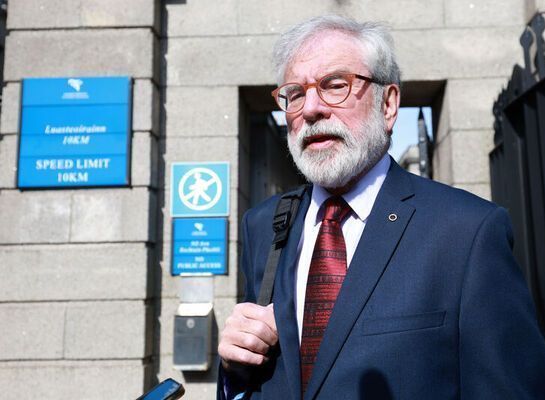William S. Devery satirized in Harper's Weekly on Sept. 6, 1902 by William Allen Rodgers.
By Geoffrey Cobb
Tens of thousands of Irish Americans have bravely and honestly served in the New York Police Department, creating a proud tradition, but Big Bill Devery was not one of them. His name remains a century after his death synonymous with corruption and graft. Devery grew so rich on the graft that he became part owner of the New York Highlanders baseball team, which later became the Yankees. New York’s last Police Chief, before the position of Commissioner was recreated, Devery set a new low for police integrity and ethics, but he was also a beloved character. Reporters knew if they wanted a good quote, or Big Bill’s acerbic opinions on the new mayors, the police department, or anything else, Devery would supply it. He was extremely colorful, funny and unfettered by common standards of decency. With no filter, Devery would say anything that came to his mind. The crusading journalist and author Lincoln Steffens summed up what many felt about Devery, “As a Chief of Police, he is a disgrace, but as a character, he is a work of art."
William Stephen Devery was born on Manhattan’s East Side on Jan. 9, 1854, the oldest of the five children of Irish Catholic immigrants. Support for Tammany Hall ran in the family. Years afterward, Bill would boast that as a boy, he had carried the dinner pail when his father, a mason, laid bricks for the Tammany Hall Wigwam clubhouse on 14th Street. A 260-pound bear of a man, Devery’s adult working life began as a bartender in rough Bowery establishments. Genial and hearty with a jolly red face and a thick black mustache, Devery also reputedly made money on the side as a local bare knuckles club fighter. In 1878, the 24-year-old Devery became a cop, reportedly paying the standard $200 bribe for his appointment. Because there were no civil service exams then, anyone with money could join the force. Devery saw the $200 as an investment, knowing that he would earn the sum back and much more through graft.
Because Big Bill liked to hold seminars around the pump at 28th Street and Eighth Avenue, he was known as the philosopher of the pump. Bill believed it was the police department’s duty to protect the lives and property of its citizens. The citizens in return, “shouldn’t worry about what they don’t see.” His advice to cops was simple: “Hear see and say nothing. Eat, drink and pay nothing.”

Big Bill Devery.
When Theodore Roosevelt became New York City Police Commissioner in 1894, he tried to wipe out the department’s pervasive corruption and instituted civil service exams to control the hiring and promoting of police officers. Corrupt politicians, however, still found ways to collect bribes. They charged $300 to take the civil service test, a promotion to sergeant cost $1,000, while becoming captain cost a whopping $12,000. To move from captain to inspector cost $15,000. In 1894, The Lexow Commission investigating corruption in New York determined that the corrupt promotion scheme put $7,000,000 a year into the pockets of politicians.
In due time, Devery advanced from patrolman to roundsman to sergeant, paying bribes for each promotion in the usual way. As he advanced in rank, Devery learned from Richard Croker, the ruthless Tammany Hall boss, to steer clear of saloons, gambling dens, brothels, off-track-betting parlors, dance halls, and other spots that paid Tammany. While serving on the force, Devery cemented relations with two power brokers: Big Tim Sullivan, the boss of the Lower East Side second in power only to Croker himself, and Frank Farrell, a Midtown saloon keeper and bookie who, in time, controlled a horse-racing stable, a succession of high-roller casinos, and more than 250 off-track betting parlors.

Frank Farrell, Devery's partner as owner of the New York Highlanders.
On Dec. 30, 1891, after 13 years on the force, Devery became a captain after paying $14,000. Put in charge of Eldridge Street station, the center of New York’s red-light district, he famously told his men:
"They tell me there's a lot of grafting going on in this precinct. They tell me that you fellows are the fiercest ever on graft. Now that's going to stop! If there's any grafting to be done, I'll do it. Leave it to me."
He set up a clever system of taking graft. Rather than taking the bribes directly, people went to a tailor where they paid exorbitant prices for clothes with Devery pocketing the money. In 1895, he was tried for corruption and despite a mountain of evidence he was acquitted. Most likely Devery had managed to pay off the jury. Devery soon attracted the attention of muckraking journalists and government reformers. Hauled before a legislative committee empaneled to investigate alleged police payoffs in his precinct, Devery remembered nothing. For the next several years, Devery was almost constantly under either indictment or charges for extortion, bribery, and other misconduct, but he always managed to beat the rap.
On Feb. 5, 1897, he was arrested and charged with bribery and extortion. Devery was convicted and dismissed from the force, but he appealed his conviction and it was overturned. Reinstated to the force, Devery was amazingly promoted to inspector on Jan. 7, 1898. He was later promoted to Deputy Chief on Feb. 14, 1898 and then Chief of Police on June 30, 1898, despite an outcry from anti-corruption advocates. Unpretentious, good-humored, and brazenly corrupt, Devery was loved by the police rank and file, with whom he regularly socialized. Many of New York’s citizens were also amused by their colorful, corrupt police chief.
Devery’s term as Chief of Police was perhaps the low point of honest policing in the city. Along with Big Tim Sullivan, Devery created a syndicate to protect gamblers, which was revealed in a New York Times expose. Author Herbert Asbury claimed the syndicate raked in $3,000,000. New York State abolished his position as Chief of Police, creating the office of Police Commissioner, but the pliable Mayor Van Wyck appointed Devery as the new Police Commissioner. Part of his duties as Commissioner involved judging officers who had violated the rules. When an officer was accused of drinking on the job he appeared before Devery who asked him to breathe in his face. When the officer refused Devery responded that he did the right thing by never opening his mouth and dismissed the case. Devery claimed that he had reduced crime to historic lows and the equally corrupt Van Wyck claimed that Devery was the best chief of police ever.
When Van Wyck was voted out of office, Devery left with him. He created his own political party – the Independent People’s Party. The symbol of the party was, what else, the pump. His headquarters was Devery’s bar, which had been nicknamed “the Bug House.” Running for mayor on the slogan, “Have a drink on me,” Devery came in sixth out of seven entries, getting just 2,960 votes. That same year, Devery and his partner Farrell bought a Baltimore baseball club for $18,000 and moved the team to New York, renaming it the Highlanders, a name they kept until they were purchased by Colonel Jacob Rupert in 1915, who changed the name to the Yankees.
Devery moved to Far Rockaway a few years later, speculated in real estate and led an unsuccessful attempt to have that area secede from the city. He began to have health problems, ballooning to over 300 pounds, and finally dying of a stroke in his bathroom in 1919.









